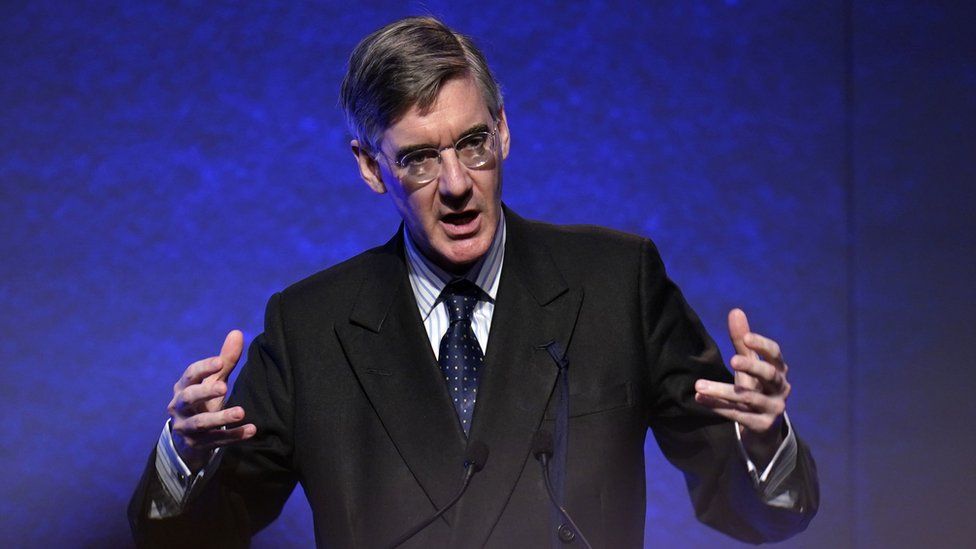ARTICLE AD BOX
 Image source, PA Media
Image source, PA Media
Jacob Rees-Mogg has suggested the Conservatives introduced voter ID to boost their election chances, but it came "back to bite them".
The former minister said it had "made it hard for our own voters" to take part in England's local elections.
The polls on 4 May were the first in Britain where people had to show photo ID, such as a passport or driving licence, to vote.
Mr Rees-Mogg said the change had "upset a system that worked perfectly well."
The government says the new voter ID rules are necessary to tackle voter fraud, and boost public confidence in elections.
But Mr Rees-Mogg told the BBC there was no evidence that the issue of voter fraud was a "serious problem" - something the government's opponents have long argued.
Speaking at a conference for Conservatives in London, he accused Labour of "gerrymandering" - fixing rules to gain electoral advantage - by potentially extending voting rights to some EU citizens if they enter government.
He told delegates Labour's idea was "particularly silly," adding: "Parties that try and gerrymander end up finding that their clever scheme comes back to bite them, as dare I say we found by insisting on voter ID for elections.
"We found the people who didn't have ID were elderly and they by and large voted Conservative, so we made it hard for our own voters and we upset a system that worked perfectly well."
Asked about his comments afterwards, Mr Rees-Mogg told the BBC: "I thought people assumed that it would help get more Conservatives out and in the end, it actually did the opposite".
He added that there was "no evidence that personation [the crime of voter fraud] was a serious problem".
"There have been hardly any prosecutions or even any complaints in this country over decades."
Discrimination accusations
Photo ID has been mandatory in Northern Ireland since 2003, but this month's local elections in England marked the first time it was required in Great Britain.
Although Mr Rees-Mogg suggested it had reduced turnout from Conservative voters, some commentators have previously predicted it would suppress the Labour vote by discriminating against marginalised groups more likely to vote for them.
Opposition parties have also claimed it will reduce turnout at elections.
The Electoral Commission, the elections watchdog, is collecting data about the application of the scheme in England and is expected to publish a report into its impact next month.
Elections officers gathered data on the number of people who were turned away at polling stations because they lacked the correct ID, and how many returned.
Some councils have started to publish headline figures on the number of people refused ballots, although it will take some time for a fuller picture to emerge.
Labour, however, has argued the true impact of the scheme may never be known because the official data does not include people who were turned away by "greeters" outside polling stations.
Information on the number of voters suspected of forging ID, or denied a vote because officials thought they were using someone else's ID, will be given to the Electoral Commission but not published.

 1 year ago
18
1 year ago
18








 English (US)
English (US)